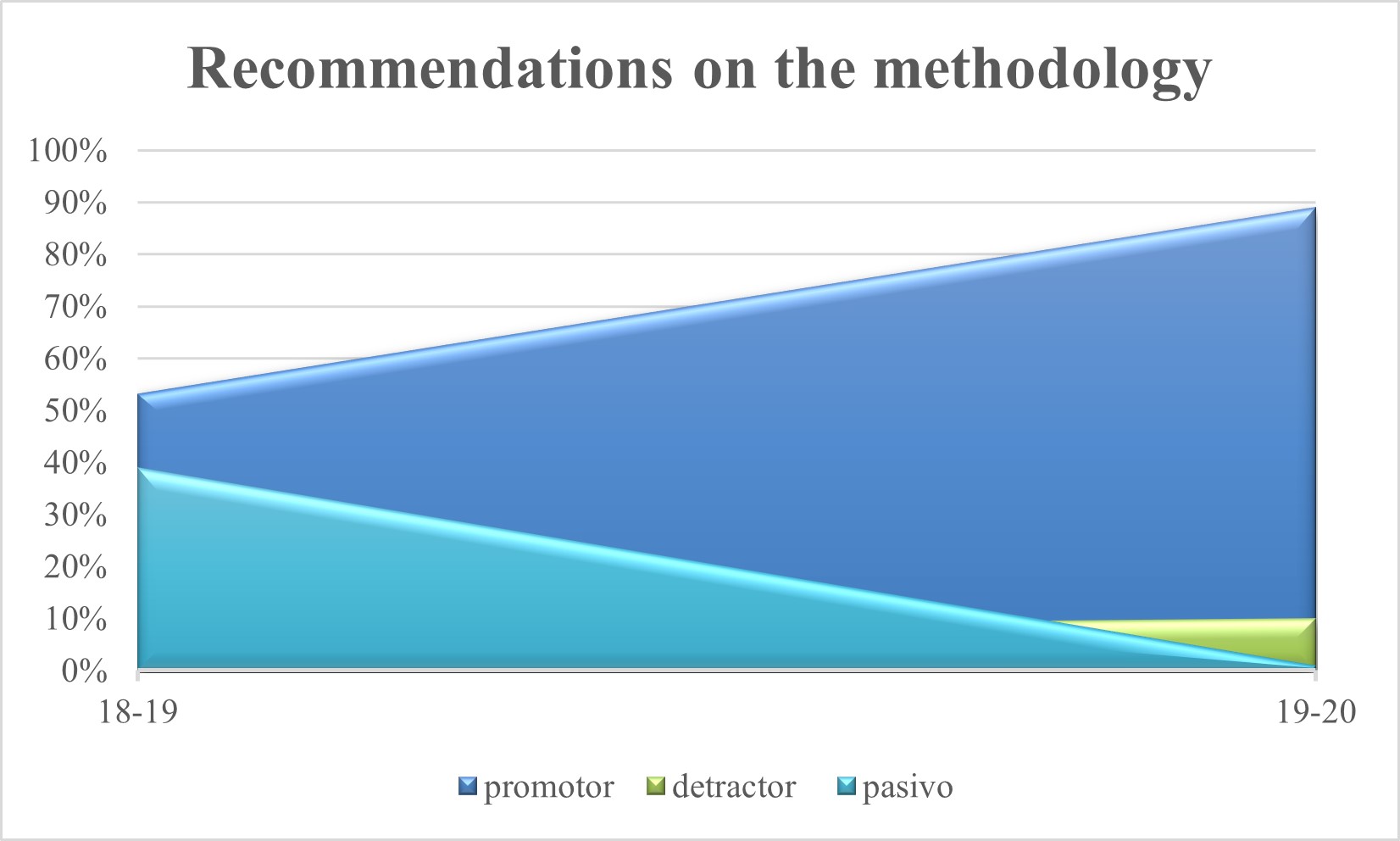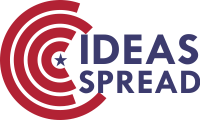Student Performance and Perception of the Teaching Methodologies Implemented by COVID-19
Abstract
The 2007 London Communiqué Towards the European Higher Education Area: responding to the challenges of a globalized world confirms that a major effect of this globalization process will be a transition to student-centered higher education. This methodological transition in teaching processes has been accompanied in all cases by technological innovation, but it is the health crisis caused by COVID-19 that drives and accelerates it.
Given this, we ask ourselves how student performance has been affected as a result of the accelerated emergence of Information and Communication Technologies (ICTs) in teaching processes, for which the results of the continuous evaluation of students of a certain subject before and after the pandemic.
The achievements show that both at a quantitative level and in the perception of the students, the changes have been positive and should have been carried out earlier, that progressivity in teaching innovations loses its meaning due to the volatile and uncertain environment in which we operate and that we learn and teachers are able to adapt quickly, even if this forces them to leave our comfort zone.
References
Álvarez, S., et al. (2011). Actitudes de los profesores ante la integración de las TIC en la práctica docente. Edutec-e. Revista Electrónica de Tecnología Educativa, (35), marzo. Retrieved from http://edutec.rediris.es/Revelec2/Revelec35/pdf/Edutece_n35_Alvarez_Cuellar_Adrada_Anguiano_Bueno_Comas_Gomez.pdf
ANECA. (2012, última actualización). Guía de Apoyo para la elaboración de las Memorias de Verificación de Títulos Oficiales Universitarios (Grado y Máster). Retrieved from http://www.aneca.es/content/download/12155/136031/file/verifica_guia_v04_120116.pdf
Batet Iborra, M., & Pellicer Rovirosa, C. (2017). Pedagogías ágiles para el emprendimiento. Aula Planeta, Girona, España: Fundación Princesa de Girona.
Cabero, A. J. (2004). Reflexiones sobre la brecha digital y la educación. En: F. Soto y J. Rodríguez (Coords.). Tecnología, educación y diversidad: retos y realidades de la inclusión digital. Murcia, España: Consejería de Educación y Cultura.
Delgado, A. M. (Coord.) (2005). Competencias y diseño de la evaluación continua y final en el Espacio Europeo de Educación Superior. Madrid, España: Dirección General de Universidades
Escribano, A., y Del Valle, Á. (2008). El aprendizaje basado en problemas. Una propuesta metodológica en educación superior. Madrid, España: Narcea.
Gallardo Fernández, I. M., De Castro Calvo, & A. y Saiz Fernández, H. (2020). Interacción y uso de tecnologías en los procesos de enseñanza y aprendizaje. Educatio siglo XXI: Revista de la Facultad de Educación, 38(1), 119-137. https://doi.org/10.6018/educatio.413441
García, G. (2002). Management. La Resistencia al Cambio. Como Administrarla. Disponible en: www.sht.com.ar/archivo/Management/cambio.htm
García-Peñalvo, F. J., & y Seoane Pardo, A. M. (2015). Una revisión actualizada del concepto de eLearning. Décimo Aniversario. EKS, 16(1). 119-144. https://doi.org/10.14201/eks2015161119144
Hannan, A., & Silver, H. (2005). La innovación en la enseñanza superior. Madrid: Nancea.
Haslam, S. A., Reicher, S. D., & y Platow, M. J. (2011). La nueva psicología del liderazgo: identidad, influencia y poder. Nueva York, Estados Unidos: Prensa de Psicología.
Knapp, J. (2018). Sprint. El método para resolver problemas y testar nuevas ideas en solo cinco días. Barcelona, España: Editorial Conecta.
Larmer, J., & y Mergendoller, J. R. (2010). 8 Essentials for Project-Based Learning. Educational Leadership, 68(1), 52-55.
Laro-González, E. (2020) Innovar enseñando: la educación del futuro. Las TICs como factor motivador en la enseñanza. REJIE: Revista Jurídica de Investigación e Innovación Educativa, (21), 11-23. https://doi.org/10.24310/REJIE.2020.v0i21.7530
López Ruiz, J. I. (2011). Un giro copernicano en la enseñanza universitaria: formación por competencias. Revista de Educación, 356, septiembre-diciembre, 279-301.
Lynch, M. (2017). What is the Difference Between Problem, Project, and Challenge Based Learning? The edvocate. Retrieved from https://www.theedadvocate.org/difference-problemproject-challenge-based-learning/
Martín Gómez S., & y Masa Lorenzo, C. (2017). Aprendizaje m-learning en la materia Dirección de la Producción mediante flipped classroom con entornos colaborativos virtuales y su evaluación con rúbricas. Revista Tecnología, Ciencia y Educación, (8), 93-107. https://doi.org/10.51302/tce.2017.156
Nelissen, P., & y Selm, M. (2008). Surviving organizational change: How management communication helps balance mixed feelings. Corporate Communications: An International Journal, 13(3), 306-318. https://doi.org/10.1108/13563280810893670
Observatorio de Innovación Educativa del Tecnológico de Monterrey. (2016). Aprendizaje basado en retos. Edu Trends.
Observatorio de Innovación Educativa del Tecnológico de Monterrey (2017). Radar Tecnológico 2017. Edu Trens. Retrieved from https://observatorio.tec.mx/radar-de-innovacion-educativa-2017
Observatorio de Innovación Educativa del Tecnológico de Monterrey. (2020). Modalidad live Educación continua en tiempo real. Edu News.
Padila Beltrán, J. E., Paez Florez, C. M., y Montoya Zapata, R. D. (2008). Creencias de los docentes acerca del uso de las tecnologías de la información y comunicación. Educación y desarrollo social (2), pags.45-57.
Panadero, E., Alonso-Tapia, J. y Huertas J.A. (2014). Rubrics vs. self-assessment scripts: effects on first year university students’ self-regulationand performance. Journal for theStudy of Education and Development, 37(1), 149-183. https://doi.org/10.1080/02103702.2014.881655
Quintana, C., Mora, J., Vázquez, P., & Vila, L. (2015). ¿Es posible potenciar la capacidad de liderazgo en la universidad? Innovar: Revista De Ciencias Administrativas Y Sociales, 25(56), 129-140. https://doi.org/10.15446/innovar.v25n56.48995
Real Decreto 1393/2007, de 29 de octubre, por el que se establece la ordenación de las enseñanzas universitarias oficiales. Boletín Oficial del Estado. Madrid, 30 de octubre de 2007, núm. 260, pp. 44037 a 44048. Retrieved from https://www.boe.es/eli/es/rd/2007/10/29/1393
Real Decreto 43/2015, de 2 de febrero, por el que se modifica el Real Decreto 1393/2007, de 29 de octubre, por el que se establece la ordenación de las enseñanzas universitarias oficiales, y el Real Decreto 99/2011, de 28 de enero, por el que se regulan las enseñanzas oficiales de doctorado. Madrid, 3 de febrero de 2015, núm. 29, pp 8088 a 8091. Retrieved from https://www.boe.es/eli/es/rd/2015/02/02/43
Sangrá, A., & y González, M. (coords.) (2004). La transformación de las universidades a través de las TIC. Discursos y prácticas. Barcelona, España: Editorial UOC.
Sands, E. C., y Shelton, A. (2010). Learning by Doing: a simulation for teaching how congressworks. Political Science and Politics, 43, 133-138. https://doi.org/10.1016/j.edurev.2019.03.002
Schank, R. (2013). Competencias docentes necesarias en el siglo XXI. En 20 Claves Educativas para el 2020, ¿Cómo debería ser la educación del siglo XXI? Encuentro Internacional de Educación, Fundación telefónica, p.29. Retrieved from http://encuentro.educared.org/
Torres, S. M. (2014). The relationship between Latino students' learning styles and their academic performance. Community College Journal of Research and Practice, 38(4), 357-369. https://doi.org/10.1080/10668926.2012.761072
Udemy (2019). Workplace Learning Trends 2020: The Skills of the Future. Retrieved from https://blog.udemy.com/udemy-workplace-learning-trends-2020-the-skills-of-the-future/
Van Dam, N. (2004). The e-Learning Fieldbook. USA: McGraw-Hill.


This work is licensed under a Creative Commons Attribution 4.0 International License.
Copyright for this article is retained by the author(s), with first publication rights granted to the journal.
This is an open-access article distributed under the terms and conditions of the Creative Commons Attribution license (http://creativecommons.org/licenses/by/4.0/).








1.png)

















